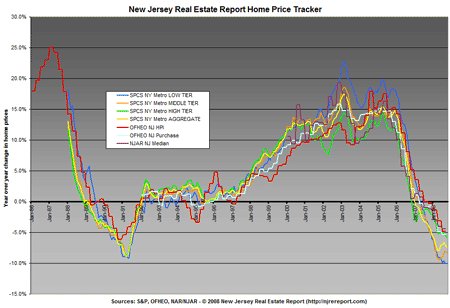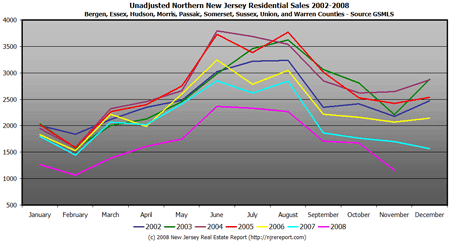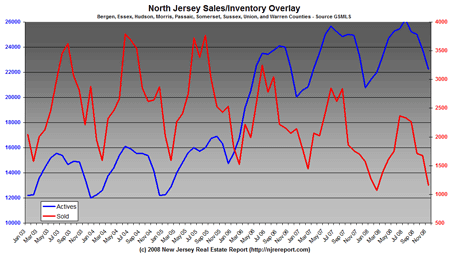From MarketWatch:
Home buyers advised to look before they leap
Fox-Pitt Kelton home-builder analyst Robert Stevenson said Wednesday he thinks this year will turn out to be “a bad time to buy a home” as the U.S. economy loses more jobs, especially if buyers don’t plan on staying in the house for at least several years.
“While some suggest that now is great time to buy a home given low mortgage rates and falling home prices, we believe that for most homebuyers, the opposite is true,” Stevenson said in a report to clients.
…
“Buyers who lose their jobs or who stay in their homes for less than seven years stand to incur substantial losses as home prices decline further in 2009 and the U.S. experiences more moderate home-price appreciation going forward,” Fox-Pitt said. “We believe too few buyers do the simple break-even math before sinking their life savings into a house.”With average rates on 30-year mortgages falling to around 5% and the government pumping liquidity into the mortgage market, many homeowners are rushing to refinance. But while the lower rates make homes more affordable, the days of buying homes with little or no down payment and shaky credit scores are long gone.
For buyers, the big fear is purchasing a house that will be worth less a year later, or even longer. Homeowners who bought at the peak of the housing bubble are underwater on their mortgages, meaning they owe more on the loan than the house is worth — and some are simply walking away.
…
National home prices were down 23% from their July 2006 peak through October, and Stevenson at Fox-Pitt predicted an incremental 20% drop in prices before bottoming, a peak-to-trough decline of roughly 40%.“While a drop of 40% seems absurdly high … it would only put home prices back to where they were at the beginning of 2002,” Stevenson said.
…
The analyst’s bearish outlook is based largely on escalating unemployment, and jobs are the lifeblood of the housing market.“As if 2008 weren’t bad enough for housing — given the mounting foreclosures, falling home prices, and a tightening credit market — millions more Americans are now in danger of losing their jobs,” said Stevenson at Fox-Pitt. “As unemployment heads towards 8%, we expect foreclosures to spike, taking home prices down materially.”
…
“If unemployment can be held under 8%, we believe the housing market will start a slow recovery beginning in 2010,” Stevenson said. “However, if the bears are correct and the U.S. experiences 9% [or higher] unemployment in [the second half of 2009] or 2010, we believe the housing market could experience a meltdown even more severe than the one we’ve experienced in the past few years.”On the supply side of housing, there remains a sizable overhang of unsold homes on the market. The supply of both new and existing homes is massive by historical standards, and a surge in foreclosures would only add to the glut if the government can’t find a solution to the foreclosure problem.
Buyers who do jump into the housing market should consider the possibility that they may need to stay in the home for many years in order to come out ahead, assuming home prices fall substantially further.
“Given the likelihood of a meaningful decline in home values in 2009, we continue to wonder why anyone would buy a home today,” said Stevenson, the home-builder analyst, in a loud and clear warning to buyers.



